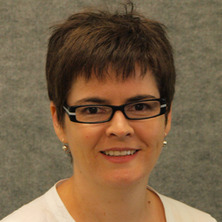
Overview
Background
Delineation of osteal macrophage function in the bone microenvironment: dual roles in bone dynamics and stem cell niches.
Bone and joint diseases are a national and international health and research priority costing the Australian health system over $10 billion annually. The bony skeleton is a dynamic metabolically active tissue that is continuously remodelled and repaired to maintain calcium homeostasis and structural integrity. The microenvironment at the inner surface of long bones (endosteum), including the bone matrix and associated bone lining cells, is crucial to the dynamic processes of bone modelling and remodelling. I have recently characterized 'osteomacs' as a resident tissue macrophage population within bone lining tissues and have shown that they promote bone mineralization in vitro and are necessary for the maintenance of bone forming osteoblasts in vivo. Thus osteomacs are cellular constituents of endosteal niches and play an osteoblast-support function in this microenvironment. We are investigating the unique phenotype and expression profile (mRNA and protein) of osteomacs in order to fully delineate their functional potential in bone dynamics.
Recently it has been shown that the endosteal environment is also essential for the maintenance of mesenchymal stem cell (MSC) and haematopoietic stem cell (HSC) niches. Osteoblasts need to be present on the bone surface to ensure HSC maintenance in the endosteal niche. Therefore we hypothesised that osteomacs, as a consequence of their presence in the niche and osteoblast support-function, contribute both indirectly and directly to the generation of this stem cell nursery. We have shown that loss of osteomacs and subsequently osteoblasts occurs during G-CSF induced HSC mobilization. Importantly, in vivo depletion of osteomacs (using transgenic Mafia mice) also causes marked egress of HSC from bone marrow into the blood and spleen. These data provide compelling support that osteomacs are required for maintenance of osteoblast bone forming surfaces and provide caretaker support for the endosteal stem cell niches.
My research team has a number of projects that aim to understand the cellular architecture of the endosteal stem cell niches and the role of osteomacs in this environment. This is an essential step toward enhancing clinical HSC mobilization options in order to improve bone marrow transplantation outcomes in multiple myeloma and lymphoma and also ensuring that the promise of MSC therapy is translated into a clinical reality.
Availability
- Dr Liza Raggatt is:
- Available for supervision
Qualifications
- Doctor of Philosophy, University of Adelaide
Works
Search Professor Liza Raggatt’s works on UQ eSpace
1999
Conference Publication
Differential expression of MDM2 splice variants in bone tumors
Evdokiou, A., Atkins, G. J., Bouralexis, S., Hay, S. J., Raggatt, L. J., Graves, S. E. and Findlay, D. M. (1999). Differential expression of MDM2 splice variants in bone tumors. *, *, 1999. Bethesda, MD United States: American Society for Cell Biology.
1998
Conference Publication
Growth inhibition by calcitonin of HEK293 cells is accompanied by induction of p21/WAF1/CIP1 and G2/M arrest
Evdokiou, A, Raggatt, L, Atkins, GJ and Findlay, DM (1998). Growth inhibition by calcitonin of HEK293 cells is accompanied by induction of p21/WAF1/CIP1 and G2/M arrest. BETHESDA: AMER SOC CELL BIOLOGY.
Funding
Supervision
Availability
- Dr Liza Raggatt is:
- Available for supervision
Looking for a supervisor? Read our advice on how to choose a supervisor.
Available projects
-
◾Macrophage regulation of the hematopoietic stem cell niche
-
◾A novel osteoimmunological approach to identify anabolic bone therapies for osteoporosis & fracture repair
Supervision history
Completed supervision
-
2009
Doctor Philosophy
Role of macrophages, residing on the bone surface, in bone remodelling and repair
Principal Advisor
Other advisors: Professor Allison Pettit, Professor David Hume
-
2021
Doctor Philosophy
Osteal macrophages as therapeutic targets for fracture repair
Associate Advisor
Other advisors: Dr Susan Millard, Professor Allison Pettit
-
2018
Doctor Philosophy
The role of macrophages in facilitating haematopoietic stem cell engraftment and reconstitution
Associate Advisor
Other advisors: Honorary Professor Jean-Pierre Levesque, Professor Allison Pettit
-
2010
Doctor Philosophy
Osteal macrophages (osteomacs) are pivotal for intramembranous bone formation in vivo: Osteomacs facilitate osteoblast maintenance in vivo and enhance osteoblast-mediated bone deposition in a murine model of bone healing
Associate Advisor
Other advisors: Professor Allison Pettit, Professor David Hume
Media
Enquiries
For media enquiries about Dr Liza Raggatt's areas of expertise, story ideas and help finding experts, contact our Media team:
